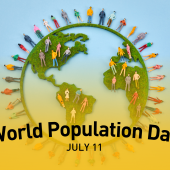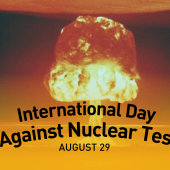World Population Day

World Population Day on July 11 is celebrated to show the significance of population matters including their relations to the environment and sustainable development.
According to United Nations, Department of Economic and Social Affairs, the world population increased by approximately 83 million persons each year. The world population is about 7.8 billion as of Jan 1, 2022 (census.gov).
HISTORICAL BACKGROUND OF WORLD POPULATION DAY
Beyond any doubt, one might know that there are more than seven billion people in the world at present, but how frequently do we halt to think about what that truly implies?
Five Billion Day, in 1987, was implied to recognize the date on which the world’s population came to an assessed five billion individuals, which took place on July 11 of that year (thus the yearly date for World Population Day).
And see how much the population has expanded since that point! Population issues cover a part of regions, from family arranging, sexual orientation balance, and environmental impacts to human rights concerns.
The Administering Chamber of the United Nations Development Program — UNDP—set up World Population Day in 1989.
The motivation for this occasion was the cresting open intrigued within the celebration of ‘Five Billion Day’ on July 11, 1987. This unique date was chosen to be set as ‘World Population Day by the United Nations General Assembly, and resolution 45/216 made this official in December 1990.
The purpose of World Population Day is to draw attention to the increasing global population.
Overpopulation is a serious issue for the depletion of the world’s resources. It is important to be aware of how population growth affects development and the environment. Besides, the health issues that women experience during pregnancy and childbirth are also highlighted by the growing population, underscoring the necessity of natural family planning, gender equality, and maternal health.
But people, not the population, should be the main concern. Humanity is lost when people are reduced statistically.
According to unfpa.org, eight billion people can be eight billion chances for more enlightened communities with rights and freedoms in the ideal world.
However, it has never been so. Too many people continue to experience discrimination, harassment, and violence based on their gender, race, class, religion, sexual orientation, disability, and country of origin, among other things. By disregarding those who are left behind, we do ourselves no approbation.
Pope Francis lamented those who do not want to have children or those who want to cover their big bellies during the meeting on the “General States of Birth” in Italy, on May 14, 2021. “It is a society that should be ashamed, not the woman,” the Pope said, adding, “Because a society that does not welcome life stops living. Children are the hope that makes a people reborn!”
The Holy Father added, “We will not be able to feed production and protect the environment if we do not pay attention to families and children. Sustainable growth comes from here.”
One of the ways to observe World Population Day is to support organizations targeting population issues.
There are several organizations and NGOs working tirelessly to address population challenges, particularly in poor countries. They include groups that assist individuals in overcoming poverty and help those who have abandoned their homes due to violations of either human or environmental rights. Find ways to support these groups with what you can.
Another way to observe World Population Day is to make responsible use of the natural resources that we have. It is good to remind ourselves that the population may increase year after year, but the natural resources are depleting exponentially.
Finally, we need to create adequate awareness among people and communities on the various challenges population growth in the world brings about.
Radio Veritas Asia (RVA), a media platform of the Catholic Church, aims to share Christ. RVA started in 1969 as a continental Catholic radio station to serve Asian countries in their respective local language, thus earning the tag “the Voice of Asian Christianity.” Responding to the emerging context, RVA embraced media platforms to connect with the global Asian audience via its 21 language websites and various social media platforms.














